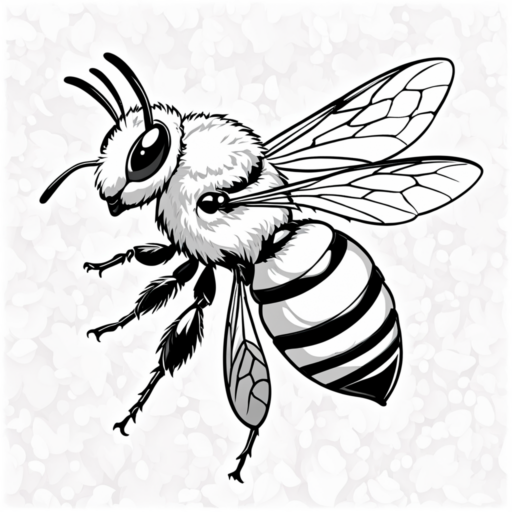Apiarist Meaning: Understanding the Role of a Beekeeper
Beekeeping is an ancient practice that has become increasingly important in modern times due to its impact on agriculture and the environment. As you explore the world of beekeeping, you may come across the term “apiarist.” But what exactly does it mean, and what role does an apiarist play in beekeeping? In this post, we’ll break down the meaning of “apiarist,” the responsibilities of an apiarist, and the history behind the term.
1. Definition of Apiarist
The term apiarist refers to a person who keeps and manages bee colonies, primarily for the production of honey and other bee products like beeswax and royal jelly. Essentially, an apiarist is a beekeeper with a specialized focus on maintaining bee hives and ensuring the health of the colony. While the terms “beekeeper” and “apiarist” are often used interchangeably, “apiarist” can imply a deeper level of involvement or a more professional approach to the practice.
2. The Role of an Apiarist
An apiarist’s job goes far beyond simply collecting honey. The key responsibilities include:
- Managing Bee Colonies: An apiarist oversees the wellbeing of the bee colonies, ensuring that they have enough space, food, and the right conditions for the colony to thrive.
- Monitoring Bee Health: Regular inspections of the hive are necessary to check for diseases, pests (like Varroa mites), and overall health of the bees.
- Harvesting Honey and Other Products: When the bees produce surplus honey, an apiarist will carefully harvest it, ensuring that enough is left for the bees to survive through the winter.
- Maintaining Equipment and Hives: Apiarists need to maintain their beekeeping equipment, including hives, frames, and protective gear. Proper care of the equipment helps prevent disease spread and ensures optimal hive performance.
3. Qualifications and Skills Needed to Be an Apiarist
Becoming a successful apiarist requires a combination of knowledge, experience, and practical skills. Key qualifications and skills include:
- Knowledge of Bee Biology: Understanding the life cycle, behavior, and needs of bees is crucial for an apiarist to maintain a healthy hive.
- Ability to Handle Bees: Apiarists must be skilled in handling bees gently and calmly to avoid harming the colony or themselves.
- Equipment Management: A deep understanding of beekeeping tools, including smokers, hive tools, and honey extractors, is essential for day-to-day hive management.
- Pest and Disease Management: An apiarist must recognize signs of common bee pests and diseases and implement appropriate measures to control them.
4. Apiarist vs. Beekeeper
While the terms “apiarist” and “beekeeper” are often used interchangeably, there can be subtle differences between the two:
- Apiarist: The term “apiarist” generally refers to someone who practices beekeeping in a more professional or commercial manner. They might have extensive knowledge and training, and their involvement with bees may be on a larger or more serious scale.
- Beekeeper: “Beekeeper” is a broader term that can be used for anyone who keeps bees, from hobbyists to professionals. It doesn’t necessarily imply the same level of expertise as “apiarist.”
5. The History of Apiarists and Beekeeping
Beekeeping dates back thousands of years, with evidence of honey harvesting found in ancient Egyptian tombs and ancient Greek writings. As the practice became more widespread, it evolved into a profession. In the 19th century, with the advent of modern beekeeping equipment and techniques, the term “apiarist” began to gain popularity. Apiarists were recognized for their specialized knowledge and expertise in maintaining bee colonies for honey production, pollination, and bee conservation.
6. Language History and Derivation of the Word “Apiarist”
The word “apiarist” has its roots in Latin. It comes from the word apis, which means “bee,” and the suffix -ist, which is used to denote a person involved in a specific occupation or activity. Together, apiarist refers to a person who practices beekeeping. The term was formalized as beekeeping grew into a more recognized and specialized field, especially during the 18th and 19th centuries when beekeeping techniques improved.
This linguistic connection ties directly to the practice of apiculture, which refers to the care and management of bee colonies. The term apiculture also derives from apis, further solidifying the link between the person (apiarist) and their craft (beekeeping).
7. Why Becoming an Apiarist is Important
Becoming an apiarist is not just a rewarding hobby or profession — it’s vital for the environment. Bees are crucial pollinators, supporting the production of fruits, vegetables, and other crops that feed humans and animals alike. By managing bee colonies, apiaries contribute to maintaining healthy bee populations and sustaining ecosystems. Apiarists are not only caretakers of bees but also protectors of biodiversity and food security.
Apiarists are often dedicated to sustaining bee health and observing bee behavior
8. How to Become an Apiarist
If you’re interested in becoming an apiarist, here are a few steps to get started:
- Get Educated: You can start by reading books, watching tutorials, and attending workshops or local beekeeping associations to learn about bees and beekeeping techniques.
- Hands-On Experience: The best way to learn beekeeping is through hands-on experience. Consider starting with a small hive and gradually expanding as you gain confidence and skills.
- Get Certified: Some regions offer beekeeping certifications that can help you gain credibility as an apiarist, especially if you plan to sell honey or other bee products.
Getting Started
Understanding the term “apiarist” and its role in beekeeping is essential for anyone interested in the profession. Whether you’re a hobbyist or a professional, becoming an apiarist means dedicating yourself to the health and wellbeing of one of nature’s most vital creatures. Beekeepers and apiarists play a key role in supporting pollination and biodiversity. So, if you’re considering stepping into the world of beekeeping, now is the time to start learning and taking action!
Ready to get started? Follow our blog for more tips on becoming an apiarist and managing your own hive!
